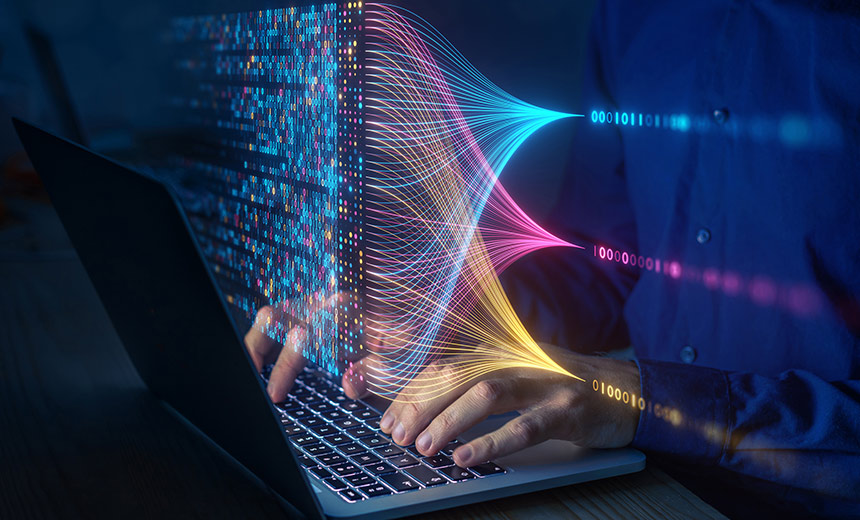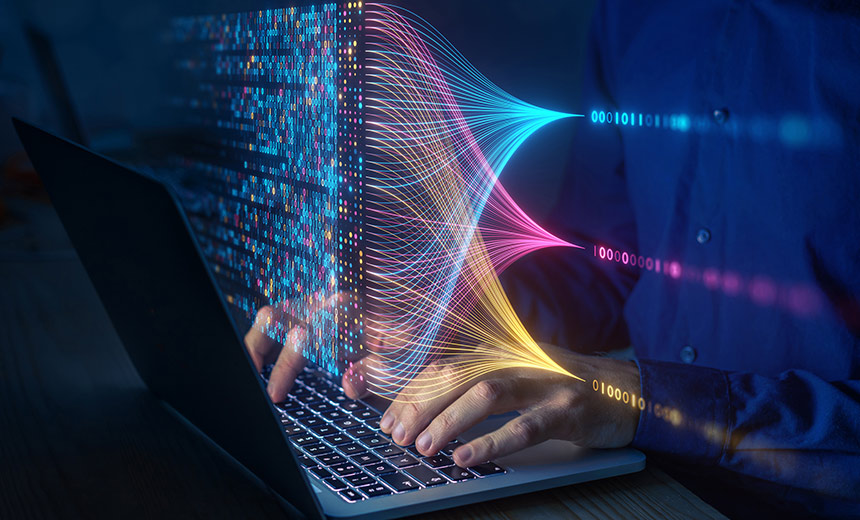Source: www.databreachtoday.com – Author: 1
Artificial Intelligence & Machine Learning
,
Next-Generation Technologies & Secure Development
Court Says Only a ‘Person’ Can Be an Inventor
Akshaya Asokan (asokan_akshaya) •
December 20, 2023

The U.K.’s highest court on Wednesday affirmed that an artificial intelligence system cannot be granted ownership of patents.
See Also: Entering the Era of Generative AI-Enabled Security
Missouri inventor and AI researcher Stephen Thaler in 2018 filed to obtain two patent rights for ideas generated by his AI system Dabus from the U.K.’s Intellectual Property Office. The agency in 2019 denied the patent on the ground that an inventor must be a person or group of persons.
Following the 2019 IPO verdict, Thaler appealed against the agency at the U.K. Supreme Court, which sided with the IPO.
Dabus “is not a person, let alone a natural person and it did not devise any relevant invention,” wrote Justice David Kitchin in a unanimous decision from a five-judge panel. “It is not and never was an ‘inventor.'”
Under the 1977 British Patents Act, applicants are required to identify any “person or persons” as the inventor. While making the application for his two patents titled “food container,” and “devices and methods for attracting enhanced attention,” Thaler stated that he personally was not the inventor and named his AI system as the sole owner of the patent.
The IPO failed his applications on two grounds: that Dabus was not a person and thereby cannot be the inventor under the law and that by making the AI system the sole owner, Thaler was not entitled to apply for the patents.
The U.K. Supreme Court echoed the IPO’s conclusions, also turning down Thaler’s argument that he has property rights in the products of his AI machine, just as a farmer owns the calf birthed by their cow. “We are not concerned here with a new item of tangible property produced by an existing item of tangible property,” Kitchin wrote. There is no principled basis for applying the property law doctrine of accession to “concepts for new and non-obvious devices and methods” generated by AI.
An IPO spokesman said the office welcomes the judicial decision, adding that the government had opened a consultation in 2021 on whether IP protection should be available for AI creations. “The response concluded that there should be no legal change to U.K. patent law now, and noted that many share the view that any future change would need to be at an international level,” said the spokesman.
Wednesday’s U.K. Supreme Court decision arises from the U.K.’s legal framework being “rooted in historical context,” Nick White, partner at law firm Charles Russell, said.
The latest decision mean that as developments in artificial intelligence progress rapidly, the existing law might not recognize an AI system as an inventor or as being capable of owning intellectual property.
“Change may be on the horizon, but it will most likely come from the policymakers rather than the judges,” White said.
Thaler received similar results in the United States, after the Supreme Court in Washington in April declined to hear his challenge to a lower court’s ruling saying that existing statute requires inventors to be natural persons.
Since AI systems heavily rely on scraped data, some of which is protected by copyright, its developers have often run into trouble under the intellectual property law.
A U.S. federal court in August turned down Thaler’s challenge to a Copyright Office decision not to extend its protections against an image he had created using AI. The Copyright Office has opened an inquiry into copyright issues raised by generative AI.
In the U.K., Getty Images filed a copyright infringement case against British startup StabilityAI’s Stable Diffusion, which can automatically generate images. In a lawsuit filed with the High Court of London, Getty alleged that StabilityAI had used its copyright-protected images as data input to train the image-making algorithm.
The U.K., which has taken a pro-AI stance over the years, is looking to relax existing copyrights rule. In 2022, the government opened a public consultation on AI and copyrights to relax existing regulations.
The key areas of this consultation include determining if computer-generated content without a human author needs copyrights, exempting data mining from the scope of the law and allowing patents for AI-generated inventions.
Original Post url: https://www.databreachtoday.com/uk-supreme-court-says-ai-cant-patent-inventions-a-23937
Category & Tags: –
Views: 14




















































